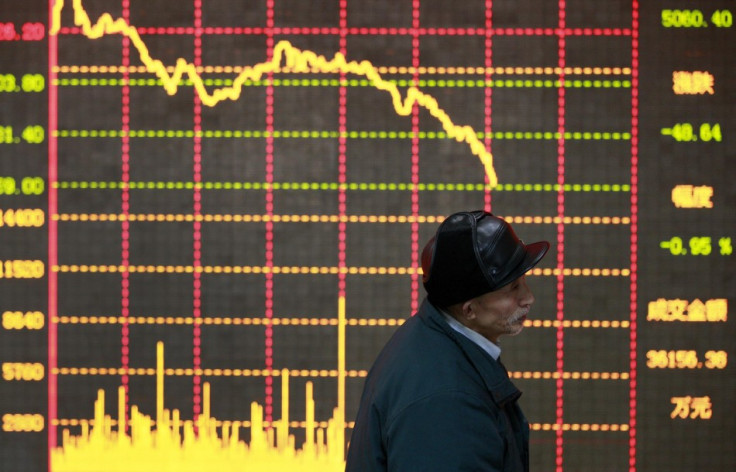Asia Stocks Weekly Roundup: Regional Indicators Return to Spotlight

Asian markets outside Japan retreated this week with the regional indices snapping a seven week rally as traders looked to book profits from the multi-month high rally through New Year and China posted mixed economic indicators.
Japanese benchmark Nikkei average index added 1.1 percent in the week, advancing for the ninth straight week. South Korea's KOSPI slipped 0.8 percent while Australia's S&P/ASX 200 eased 0.3 percent.
China's Shanghai Composite Index declined 1.5 percent. Hong Kong's Hang Seng fell 0.3 percent. The regional gauge MSCI Asia Pacific Index eased 0.1 percent after advancing for the past seven weeks.
Traders began the week on a cautious note after the previous week's market rally on the back of US fiscal cliff solution and strong regional indicators which lifted stocks to exceptional levels. After the initial euphoria, investors preferred to book profits as they look forward to the US earnings season.
Alcoa, the world's largest aluminium maker and supplier to a wide range of industries, began the earnings season this week. The organisation rebounded to gains in the fourth quarter, aided by more stable prices for raw materials, better sales in specific areas and spending cut measures. The firm also forecast improved prospects for the global aluminium market in 2013.
Market focus returned to eurozone this week as European Central Bank (ECB) and the Bank of England (BoE) retained interest rates after a policy review. Several economic indicators were also released in the bloc in the past five days, including employment and industrial output figures. The figures were far from encouraging, with the eurozone jobless rate hitting fresh highs at 11.8 percent in November and German data remaining well below expectations.
Asia Back in Spotlight
As the developed Western countries presented a mixed picture, Asian investors turned to regional economies for inspiration. In Japan, sentiments continued to be upbeat after the pro-stimulus Liberal Democratic Party (LDP) took office in December. Traders remained optimistic that the government would keep its electoral promises and would undertake aggressive monetary easing measures to boost Japan's struggling economy.
Towards the week's end, Japanese Prime Minister Shinzo Abe announced a 10.3 trillion yen ($116bn; £72bn) stimulus package that included infrastructural spending and investment boosting measures. The plans were aimed at fuelling the economy up by about 2 percent and create nearly 600,000 jobs.
Though these measures weakened the already faltering yen and cheered equity markets, analysts remain unconvinced on its longer term impact. Julian Jessop, Chief Global Economist at Capital Economics in UK notes that "In announcing yet another fiscal stimulus package, heavy on public works spending and subsidies for popular projects, Japan's new government is simply repeating what the others have done before."
"If anything, the measures cast further doubt on the willingness to take tough decisions, notably on the consumption tax, and might actually undermine the case for more aggressive monetary easing".
Chinese Indicators
Chinese economic indicators released this week remained mixed. Data released early in the week showed that trade surplus had widened larger than expected to $31.6bn in December as exports jumped 14.1 percent. This unexpected increase boosted the markets in the region and supported European and US markets to post strong gains. Though the Chinese economy was widely expected to post improved indicators in the month, analysts were not quite certain on the reasons behind such a huge trade surplus.
Later in the week, China released its consumer price index, which showed that December inflation increased more than expected, by 2.5 percent. Market sentiments dipped following the data release as higher inflation rates dented the chances of further monetary easing measures.
"Rising inflation expectations have put the PBOC between a rock and hard place," said analysts at ANZ Research.
"It is difficult for it to ease monetary policy now, but the current reverse repo operations have become increasingly unsustainable, and even disruptive to short-term market interests".
Nevertheless, global investors remain optimistic on China's economic prospects in the coming months. Robust manufacturing and industrial figures supported by government stimulus measures released since September had raised speculations that Chinese economy is well on track to recovery.
The Week Ahead
The US earnings season is set to continue in focus as investors look to corporate performance in the fourth quarter for indications on economic outlook. Although Alcoa's better figures appeased the markets, the real test begins when major financial firms such as JP Morgan, Citi and Goldman Sachs, and technology majors such as Intel and General Electronics announce their earnings.
A number of economic indicators are set for release in the coming week. The eurozone industrial output and trade figures are set for release along with German annual Gross Domestic Product (GDP) figures. German economy ministry has already noted that the country's economy contracted in the fourth quarter as firms cut output as demand weakened. German economy is likely to have grown 0.8 percent in 2012, according to a Reuters report citing a poll of economists.
China's fourth quarter GDP and December retail sales figures are also set for release in the coming week. Recent indicators have pointed to strong economic recovery in the fourth quarter. Analysts at Lloyds Bank note that in the fourth quarter, the world's second largest economy could expand about 2.4 percent over the previous three months. Organisations such as the World Bank had earlier forecast robust growth outlook for the country.
In Japan, the December consumer confidence index, which is expected to have turned positive after LDP's victory, and November machinery orders are set for release.
© Copyright IBTimes 2025. All rights reserved.





















